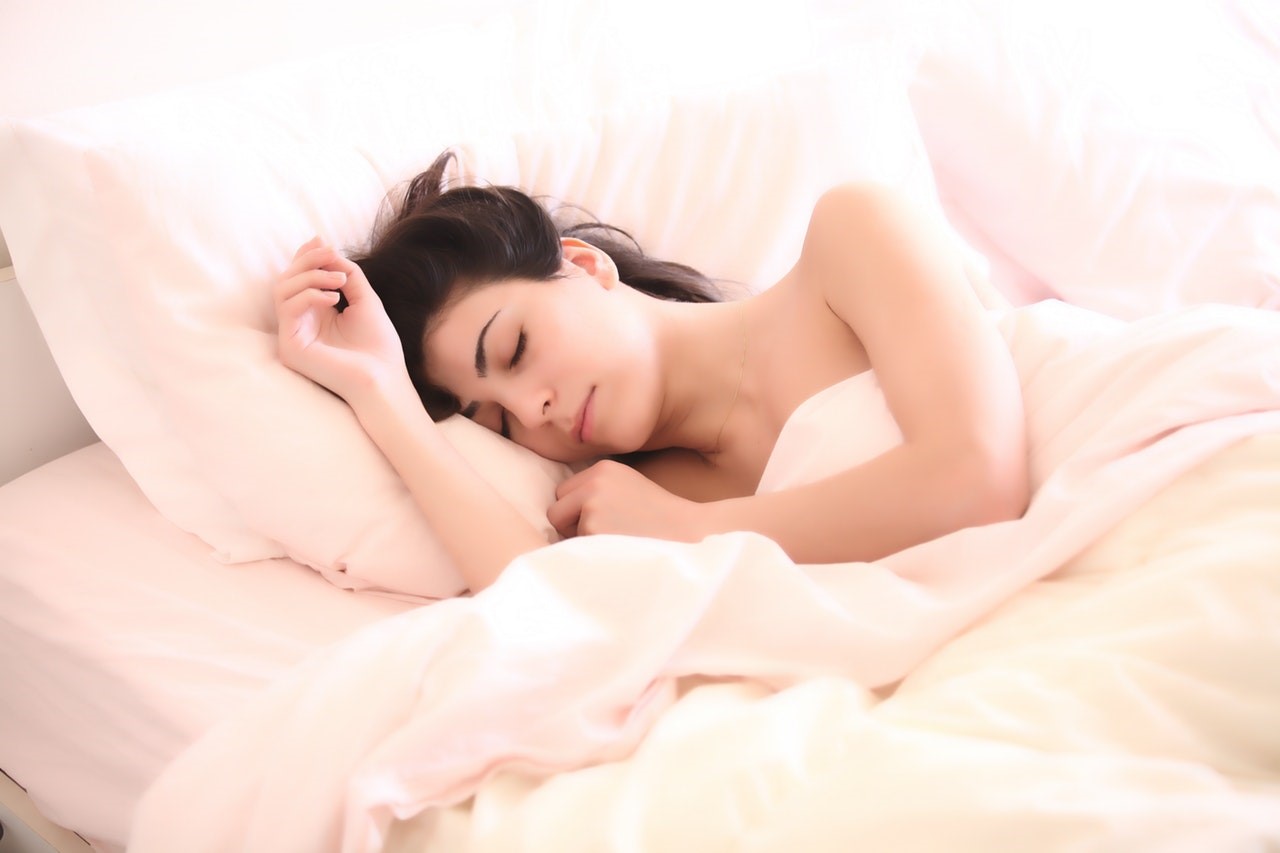1. Sleep better with the right mattress and pillow
For a restful sleep we must feel well. The pillow plays an important role here: For side sleepers it should be 40 by 80 centimeters in size, for back or abdominal sleepers 80 by 80 centimeters. If your bed feels too hot when you sleep, it’s likely you have a memory-foam mattress or latex mattress since these materials tend to retain warmth. In this case, you may want to look for a traditional inner-spring mattress.
2. Find the right plants for your room
Plants make rooms more comfortable – even the bedroom. However, as most of them consume oxygen at night, they can disturb their sleep. Anders Bogenhanf and Aloe vera: They also give off oxygen at night.
3. Do not let worry about sleep
Often we do not come to rest in the evening, because we deal with tormenting thoughts. So you do not take the worries to bed, you should write them down and leave the note in a drawer overnight. So the thoughts disappear from the head.
4. Listen to sleep
If you fall asleep badly, a little night music helps. Keep the music quiet so you have to listen carefully. By doing so, you focus and stop the disturbing thought carousel that prevents you from falling asleep. It should, however, be a quiet and relaxing music. Audiobooks work equally well with speakers whose voice is as deep as possible.
5. The right nap strategy
At the latest with the beginning of the pension, the sleeping behavior of many changes. Many take a nap during the day, often without even realizing it. The longer the body rests during the day, the less recovery it needs at night. The result: They believe they sleep less than they used to – which is not the case. Experts advise: Who dozes at noon, should whenever possible at the same time of the day and for a maximum of 30 minutes rest. So the body can adjust to the regular nap. At least four hours should be before bedtime in the evening.
6. Sleep better: breathing exercise for relaxation
With a targeted breathing exercise you can calm your nervous system and put your body in a state of rest and relaxation. The so-called 4-7-8 breathing should let those affected fall asleep in just 60 seconds. This is how it works: The tip of the tongue touches the elevation directly behind the front teeth. Exhale the air noisily through the mouth. Close the mouth and inhale through the nose, counting inwardly to four. Hold your breath, counting inwardly to seven. Exhale the entire breath noisily through the mouth, counting inwardly to eight. Repeat exercise four times.
7. The ideal interior in the bedroom
To sleep well, we must be able to rest. This works better if the walls are painted in soft pink or blue. In addition, put out everything that creates unrest, such as small decorative objects, but also ironing board or laundry basket. Also reduce electrosmog exposure by removing cell phone or alarm clock with LED display.
8. The right light for your bedroom
The darker it is, the more our brain releases the sleep hormone melatonin. The body turns to sleep and gets tired. By contrast, larger amounts of the hormone serotonin, which makes us awake, form when it’s light. Therefore, experts recommend darkening the bedroom windows with shutters or light-tight curtains. Accordingly, we should abstain in the evening on bright ceiling lamps. Instead, several small light sources, such as bedside lamps, create a relaxing, cozy atmosphere. It is best to use warm white light bulbs with a color temperature of 2700 Kelvin or less.
9. This is the ideal time to sleep
Regular bedtime and getting-up time are among the most important prerequisites for a healthy sleep. But when is the right time? Everybody has their own little sleepwalker, which opens about every 90 minutes. During this time, the body undergoes a phase of relaxation. For most of us, the ideal time to fall asleep is between 10pm and 11:30 pm. The fact that the body needs rest, we notice, for example, the yawning and heavy eyelids. If possible, you should go to bed for the next 20 minutes. The ideal time to get up is when you are in light sleep – after about six, seven and a half or nine hours.
10. Miracle cure walk
In old age, the sleep rhythm changes and we get tired sooner. But those who sleep at 8 pm slept well at 4 o’clock in the morning – but usually they do not feel that way. But how can we get our inner clock right again? For the sleep-wake cycle, it is not only important that it is dark at night, but also that you get plenty of natural light during the day. This succeeds, for example, with a short walk. The sun does not even have to shine, even in the rain, this effect occurs. In addition, exercise in the fresh air improves our sleep.
11. Use sleep aids properly
In severe cases, the doctor may prescribe sleep aids such as benzodiazepines or so-called Z drugs such as zopiclone and zolpidem. These should not be taken more than twice a week to avoid habituation and possible addiction. Because the active ingredients remain active in the body for at least nine hours, they should be taken by no later than 10 pm.
Tip: Herbal remedies based on lavender or valerian will not make you tired the next day. They can – as for example also sleeping teas – be taken quietly every evening.

